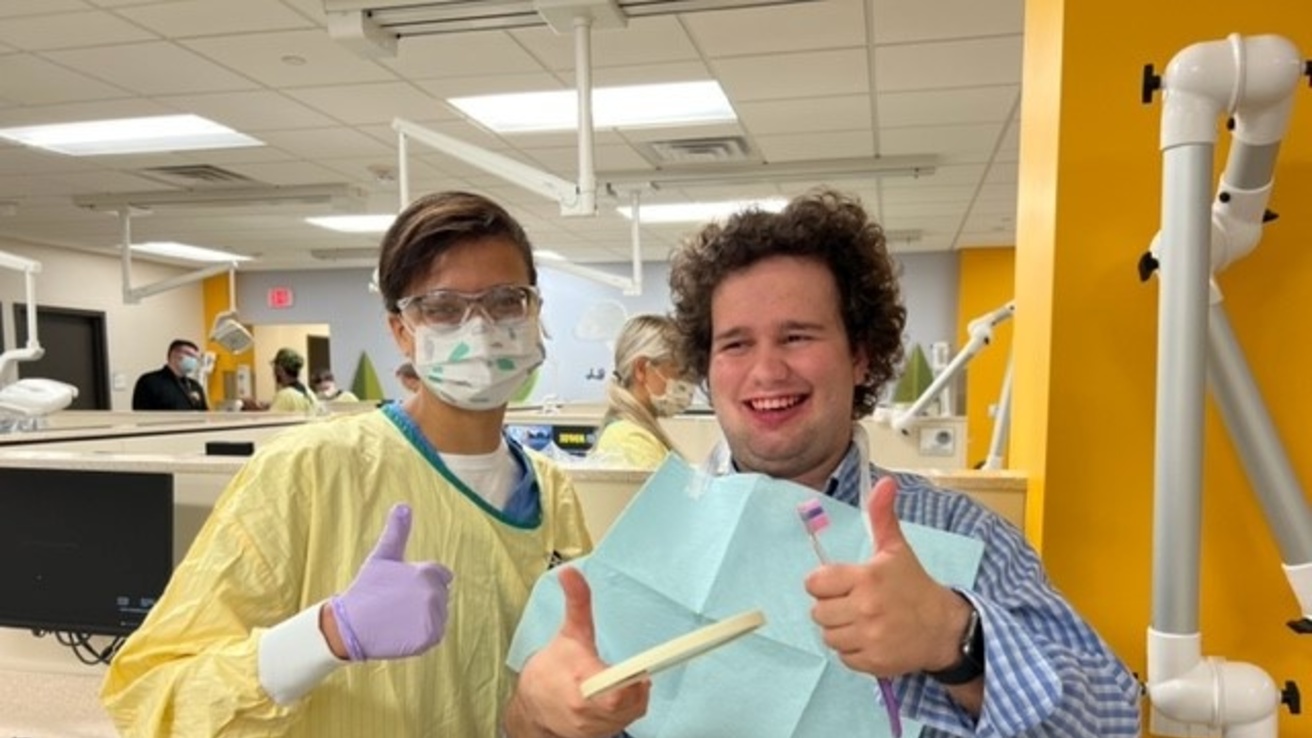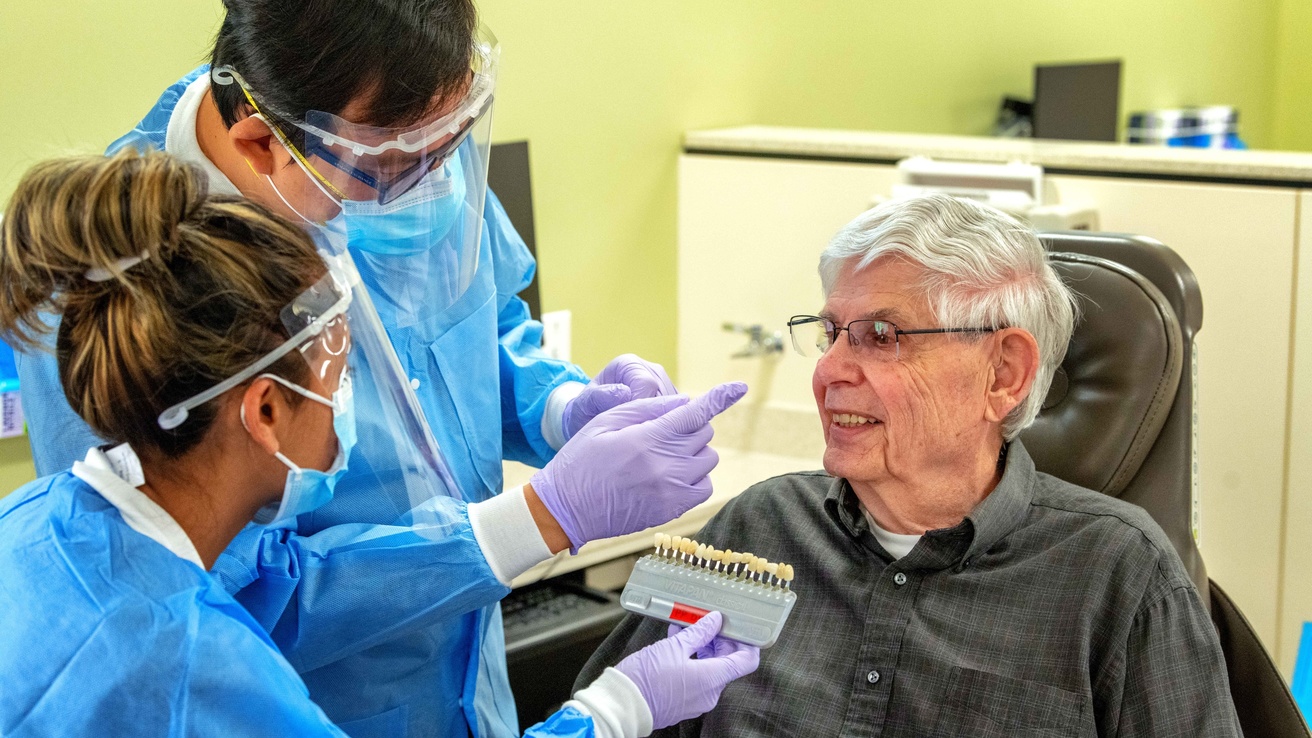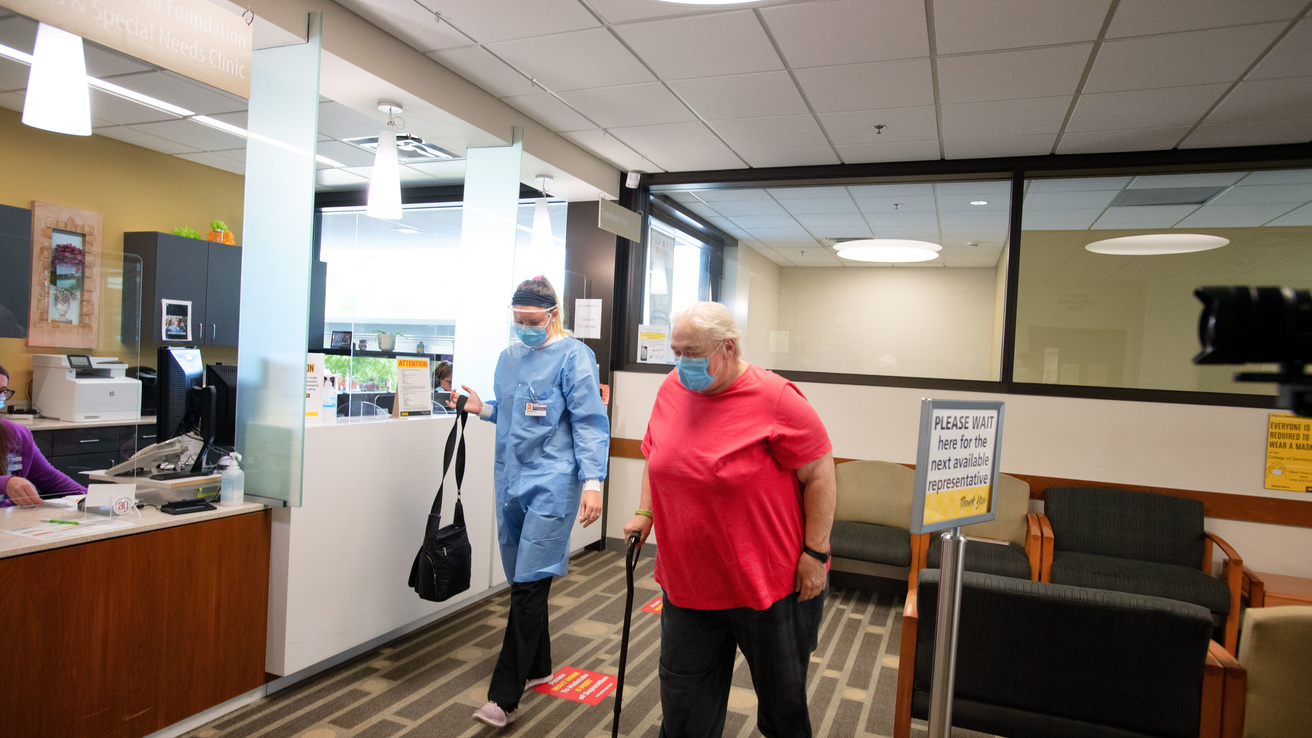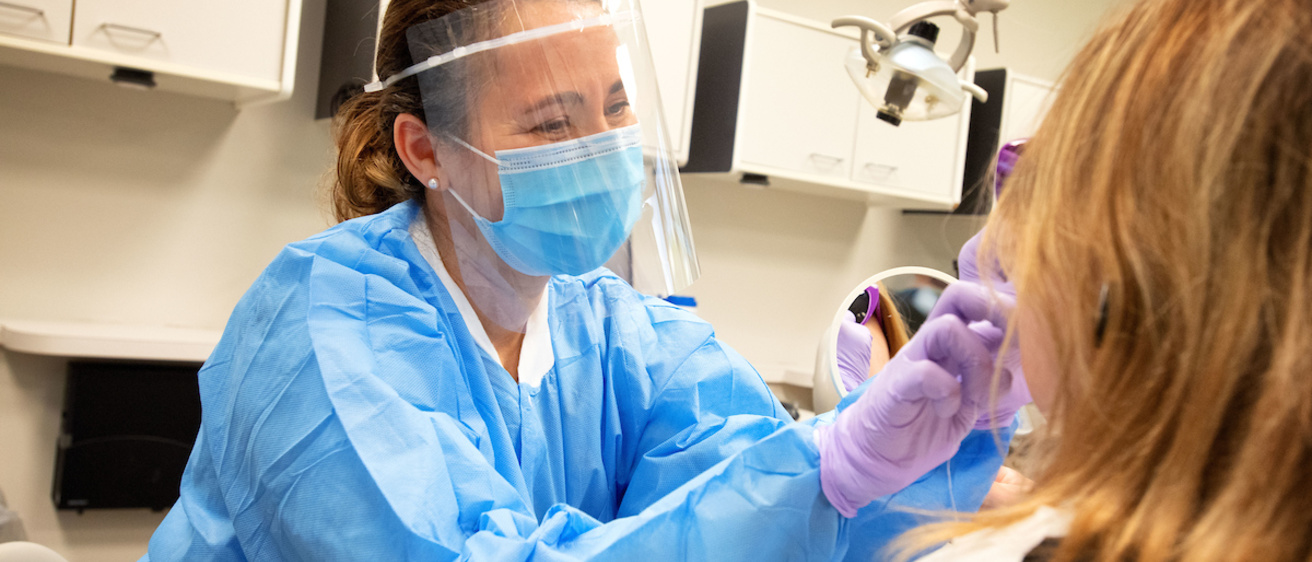Iowa Person Centered Oral Health
Person-centered care is a way of thinking and providing care by taking into consideration the preferences, beliefs, and values of the person. Focusing on the elements of care, support and treatment by using health and social services as equal partners. Patients and their families are at the center of decisions.
At Iowa you will learn to adopt health care models that aim to improve health outcomes while improving the patient’s experience. The future in dentistry is to manage the oral health of our patients throughout their lifetime taking into consideration that oral diseases have an influence on overall health and vice versa. Students work together with other health care providers taking into consideration the patients’ preferences and values are the key elements in the person-centered care model.
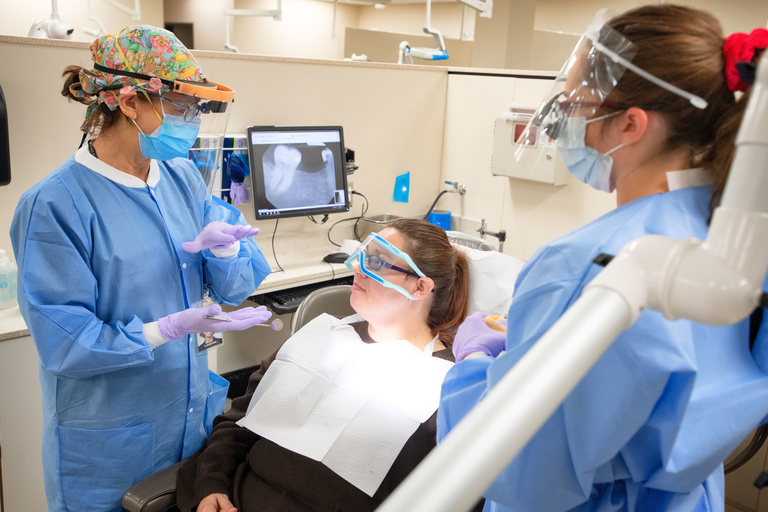
Behavioral Sciences
Beginning in the first semester and continuing through their dental education, students are trained in behavioral health concepts, skills, and strategies to enhance their effectiveness and career satisfaction. The Clinical Practice and Profession thread emphasizes the behavioral sciences and topics such as empathy, communication, interprofessional education and culturally responsive care throughout the four-year curriculum.
LEARN MORE ABOUT THE CLINICAL PRACTICE & PROFESSIONAL CURRICULUM
LEARN MORE ABOUT THE CLINICAL PRACTICE & PROFESSIONAL CURRICULUM
EMPATHY
The most valued skills patients look for in their dentists are the ability to listen carefully, to take patients concerns seriously and to treat patients with dignity and respect. Therefore, combining compassionate care and clinical excellence is key for achieving the best possible outcomes in dentistry. In the University of Iowa College of Dentistry and Dental Clinics, besides a world-class clinical education, our students actively learn all the skills to become compassionate providers.
COMMUNICATION
We recognize that communication is essential to oral health for both the patient and the public. The faculty at the College of Dentistry includes a behavioral scientist who has co-authored the only contemporary, evidence-based textbook on communication in oral health. Students pursue instruction throughout the curriculum in patient-provider communication which relies on the latest research to foster long-term, patient-centered relationships. Our instructional methods include standardized patient training, interprofessional case simulation, shadowing/mentoring, externships, lectures, and group case analyses, and we believe these methods produce some of the most effective and engaging new dentists in the profession.
INTERPROFESSIONAL PRACTICE
The interprofessional practice curriculum teaches the importance of collaboration across disciplinary lines to achieve care that is truly patient-centered. Students begin this training at the College, and later join students from a wide range of other health programs to practice the collaboration they will model in their careers.
CULTURALLY RESPONSIVE CARE
As future health professionals, you will understand the role of health disparities and social determinants of health as well as develop skills in treating patients in an unbiased, culturally sensitive manner. The College of Dentistry offers a curriculum enriched in culturally responsive care that exposes students to an array of topics that are essential for developing effective patient care skills and preparing you to become part of the healthcare system that addresses individual and community barriers to optimal care.
